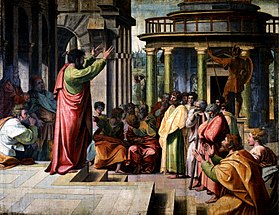In today’s First Reading Peter reminds us all that we have been ransomed from a pointless life by the blood of Christ. It became pointless because after the Original Sin of Adam and Eve our lives became “futile”: there was no way we could escape death or sin on our own, and this evil held us captive with no one to pay for our release. The price was too high for any reasonable person: it was a ransom of not just blood, but death, and not just any death, but the death of someone worthy to make proper expiation.
That someone was Our Lord. He became man and paid our ransom. What we received through an outpouring of water and an invocation of the Trinity at Baptism gave us not only a new lease on life, but a new life. We’ve not only been rescued, but reborn. In today’s Gospel Our Lord warns the disciples about what is about to happen (his Passion), but some of them are still thinking of potential glory and not of the cross that it takes to get there. We’ve died in Christ, and now we need to live by not making the same mistake.
There’s no glory that compares to a new life. Let’s live a life worthy of the price Our Lord paid for it to be holy and happy.
Readings: 1 Peter 1:18–25; Psalm 147:12–15, 19–20; Mark 10:32–45. See also 8th Week in Ordinary Time, Wednesday, Year I, St. James the Apostle, 29th Sunday in Ordinary Time, Cycle B, and 2nd Week of Lent, Wednesday.

